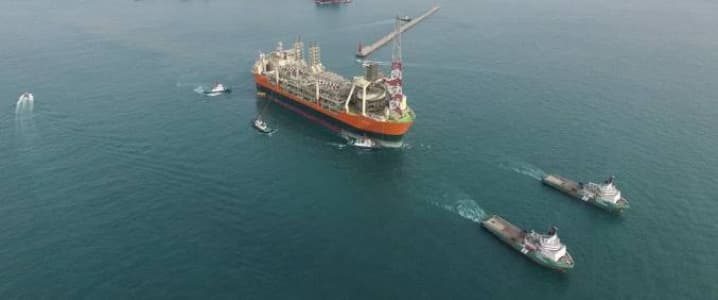The most traded commodity of the 21st century, oil is an essential factor to both oil-producing and oil-importing nations’ financial stature, and consequently it remains intrinsically linked to politics. Yet who said politicians take advantage of their position and play the “oil card” for private ends? And since when are people in the oil sector immune to venal and self-serving endeavors? Thus, in the current period of transition towards a higher oil price environment, after a massive depression turned bankrupt many high-risk companies and thwarted exploration activities in many oil-producing regions all over the earth, it is increasingly important to watch out for oil-related hoaxes.
The oil industry is still susceptible to the belief that a sudden sweeping change might change the way we produce or refine oil. The French oil sniffer hoax happened 40 years ago, yet it still bears many implications for our time. It would be erroneous to think that a project that alleged to have found the needed technology to detect oil (if it works for the metal detector, it might work for oil detection, too) without any sort of surveying, by merely flying over it, is unthinkable of in the 21st century. It mostly certainly is. In the perpetual hunt for market shares and state-of-the-art technology breakthroughs, it is very easy to mistake the wish for reality, especially given that many state-owned companies’ top management lacks a profound understanding of petrophysics. Yet even a relevant education does not prevent people from being dreamers – Elf’s Director at the time of the sniffer hoax, Pierre Guillaumat, was a „classically trained” geologist, yet even he mistook a simple photocopier for an $100 million oil sniffing device. Related: The Top 10 Nations Exporting Oil To The U.S.
A rustic platitude as it may sound, yet a wise investor ought to look out for potential pitfalls and underlying narratives when examining the possibility of investing in a project. For instance, when in 2013 the now-bankrupt Linc Energy declared that it found an oil formation containing up to 233 billion barrels of oil in the Arckaringa Basin in Australia, dubbing it the new „Saudi Arabia” and vowing to transform the global oil flows, the most prudent reaction was to look not at the Basin itself, but at the company’s debt woes, incurred partly as a result of a gas leak accident in 2007. Alas, despite having found a new „Saudi Arabia”, the company is now bankrupt. Perhaps a similar situation might be playing out in England, where a 2015 oil discovery near Gatwick has caused quite a stir within oil sector specialists.
When UKOG claimed in April 2015 that the Horse Hill formation, according to their data, contained up to 100 billion barrels of oil, their shares skyrocketed and talks of a Dallas-style Sussex oil boom proliferated. Although up to now there has been no official refutation of the abovementioned claim, there is good reason to doubt such oil bounty. First of all, the UK Geological Survey has estimated that the total shale reserves of the Weald Basin, which almost wholly encompasses South England (incl. of course, Horse Hill), stand around 4.4 billion barrels. Moreover, experts estimate that the whole shale play in Southern England is likely to yield at most 1 billion barrels of oil, even this on the understanding that fracking will be allowed. Now where does this put the Gatwick discovery, a find of „national significance”? It might well turn out to be a regular producing oil field, however, by no means a „new Iran”. It has to be noted that apart from vested interests or last-resort efforts to ease liquidity problems, misleading information about bombastic oil discoveries might also serve purely political purposes. Related: Not OPEC, China Dictates The Oil Prices
When Gambia’s then-President Yahya Jammeh announced in 2003 the discovery of “large quantities” of oil off the countries’ coast, a large-scale internal campaign (the message was widely circulated on TV and radio air) began that already envisaged Gambia as a new member of the OPEC. The President’s announcement was never corroborated by 3D seismic survey results, which the owner of the license, Buried Hill Energy, was reported to have completed. In the absence of any substantiated information, Gambian spirits were further raised by the 2007 discovery of the 370 MMt Jubilee field in Ghana. A new generation of Gambians has since then come to age, which inter alia was instrumental in ousting President Jammeh, however, Gambia’s only drilled well still dates back to 1979 when Chevron drilled its Jammah-1. Does it mean that Gambia and its territorial waters are devoid of any hydrocarbon reserves? Not necessarily.
However, these reserves might be really difficult to produce due to complex geology or excessive costliness. The technicalities of oil extraction in new frontiers are very rarely discussed when political matters hold sway over energy-sector arguments. What is there to do, you ask? Well, if one is to stick to a moderately conservative approach, investing in regions with a more or less known geology is a good point to start with – as increasingly sophisticated techniques allow us to drill deeper and further. The Guyana oil find (a geological continuation of Venezuela’s Maracaibo Basin), Mexico’s almost untapped Burgos Basin (continuation of Eagle Ford), Russia’s Arctic fields bear witness to the applicability of such an approach. If one is to go for the high-risk alternatives, go for projects that demonstrate transparency, accountability and no hidden reefs. Easier said than done, but still.
By Viktor Katona for Oilprice.com
More Top Reads From Oilprice.com:
- Oil Markets Worry OPEC Has No Exit Strategy
- Is This The "Mystery" Massive Long Supporting The Oil Market?
- Is This Saudi Arabia’s Newest Strategy To Boost Oil Prices?

















